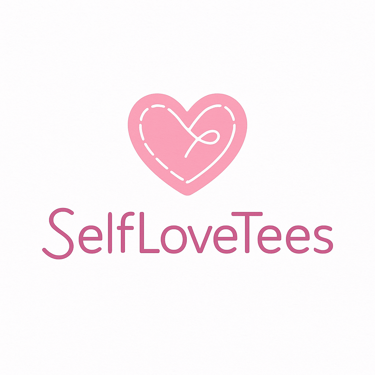Free shipping on orders over $50
The Surprising Science Behind Self-Love: Unveiling Its Impact on Our Well-being
Embark on an enlightening journey with us as we delve into the transformative world of self-love and its profound influence on mental and physical health. "The Surprising Science Behind Self-Love: Unveiling Its Impact on Our Well-being" is more than just a blog post; it's a comprehensive exploration into how self-love, far beyond the confines of spa days and treats, forms the cornerstone of our overall well-being. Discover the rich tapestry of self-love's history, from its ancient philosophical roots to its modern-day scientific validation, and how it has evolved from being misunderstood to a crucial element of psychological research. Through a blend of scientific evidence and personal insights, we uncover the myriad ways in which practices of mindfulness, self-compassion, and kindness towards oneself can combat anxiety, boost self-esteem, and even extend our lifespan. Join us as we offer practical, science-backed strategies for incorporating self-love into your daily routine, overcoming societal and cultural barriers, and transforming the way you view and treat yourself. Whether you're a self-love skeptic or a believer in its power, this post will illuminate the surprising science behind self-love and inspire you to embrace its practice for a more fulfilled life.
Charlie S. Vazquez
4/2/20243 min read


The Surprising Science Behind Self-Love: Unveiling Its Impact on Our Well-being
When we hear the term "self-love," images of spa days and indulgent treats might spring to mind. But is there more to the concept than meets the eye? Recent scientific studies suggest that self-love could be a cornerstone of both mental and physical health. Let's dive into the evidence and explore how giving ourselves a little love can lead to significant health benefits.
Understanding Self-Love: More Than Just A Buzzword
Defining Self-Love
Self-love is often mistaken for selfishness or vanity. However, at its core, self-love is about:
Recognizing and meeting our own needs
Respecting our limitations
Forgiving ourselves when we fall short It's a state of appreciation for oneself that grows from actions that support our physical, psychological, and spiritual growth.
Historical Perspectives
Throughout history, the concept of self-love has journeyed through various interpretations. From ancient philosophies to modern perspectives, the essence of self-love has been recognized as a fundamental aspect of human experience.
Current Trends in Self-Love Research
In recent years, the empirical study of self-love has taken root in scientific literature, revealing the tangible benefits of what was once considered just a feel-good term.
The Mental Health Revolution: Self-Love's Role in Psychological Well-being
Combating Anxiety and Depression
Mindfulness and self-compassion, key practices of self-love, have been shown to significantly reduce symptoms of anxiety and depression, altering the brain’s response to stress.
Self-Esteem and Confidence
Longitudinal studies report that individuals who practice self-love boast higher levels of self-esteem and confidence, endorsing the power of self-acceptance.
Resilience and Coping
Self-love equips us with a kinder internal dialogue, enhancing our resilience and ability to handle life’s challenges with grace.
Physical Health and Self-Love: A Symbiotic Relationship
Stress Reduction
Practices like meditation are known for stress reduction, which in turn improves mental and physical health indicators, such as blood pressure and immune function.
Heart Health
A positive self-perception and self-love practices are linked with lower risks of cardiovascular diseases—loving yourself might indeed be heart-healthy.
Longevity and Life Satisfaction
Self-love correlates with longer lifespans and higher life satisfaction, highlighting the importance of self-appreciation.
Self-Love Practices: What Science Suggests Works Best
Mindfulness and Meditation
These practices not only reduce stress but also act as tools for fostering a nurturing relationship with ourselves.
Journaling and Self-Reflection
Journaling aids in emotional processing and leads to greater self-awareness and love.
The Role of Physical Exercise
Beyond physical benefits, exercise is a form of self-love that reinforces self-care and boosts endorphins.
Overcoming Barriers to Self-Love: Challenges and Solutions
Societal and Cultural Challenges
Confront societal stigmas by redefining the value of self-love for personal well-being on your own terms.
The Internal Critic
Learn to quiet the internal critic with a compassionate voice that supports and encourages.
Setting Realistic Expectations
Starting small and recognizing every bit of progress can sustain motivation and foster genuine self-appreciation.
Conclusion: The Path Forward in the Science of Self-Love
The exploration of self-love unveils a vital connection to our overall well-being. As we delve deeper into its scientific underpinnings, it becomes evident that self-love is a fundamental component of a healthy life.
FAQ: Navigating the Science of Self-Love
What are the first steps to practicing self-love? Begin with small, kind gestures towards yourself, such as enjoying hobbies or daily affirmations.
Can self-love improve physical health? Absolutely. Self-love contributes to better physical health outcomes, including stress reduction and heart health.
How to differentiate between self-love and narcissism? Self-love involves self-care and acceptance, whereas narcissism is characterized by excessive self-centeredness and disregard for others.
What are daily practices to enhance self-love? Mindfulness meditation, journaling, and regular physical exercise are scientifically backed practices that enhance self-love.
How long does it take to see the benefits of self-love practices? While individual experiences vary, improvements in well-being can often be felt within a few weeks of consistent practice.
